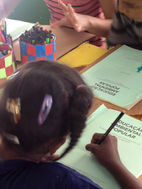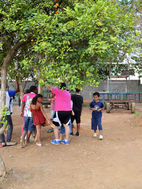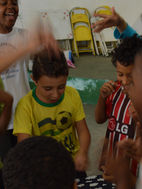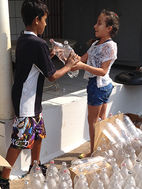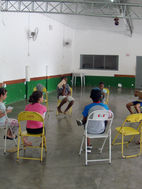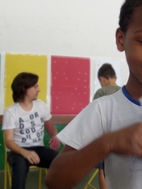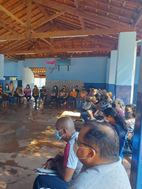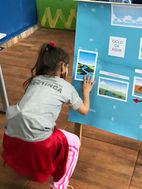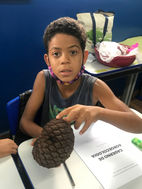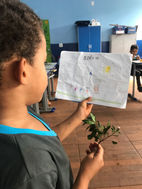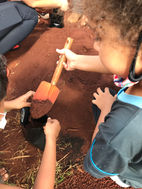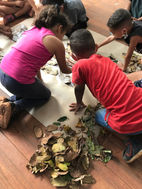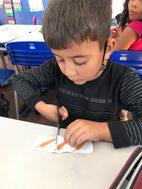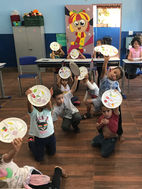We develop Popular Education for Sustainability projects for schools and social services to work with children, youth, adults and elderly living in the cities or the countryside. And this is the Popular Education beauty. Everything begins with the world's interpretation of those participating. The localized knowledge is the epistemological base for any debate about Sustainability.
"
"
ENVIRONMENTAL
EDUCATION
Beyond behaviourism, environmental education is awareness development. However, denying an ephemeral awareness stuck in brief experiences, but affirming the amplification of the meaning of life. Also, the variety of the forms in the Kingdoms of Nature are just life manifestations. An awareness that is capable of comprehending that life is the manifestation of all and how humans can interrupt or enhance its manifestation.

RECOVERING OUR TRANSFORMATIVE POTENTIAL THROUGH OBSERVATION, DIALOGUE AND PLAYFULNESS
Our working experiences have confirmed that environmental education nature is communal. Only in group actions, we will overcome the insistence of a world that increasingly separates people and Culture from Nature. This is precisely the problem’s essence, the fictional conception of individualism as the path to happiness. Also, following the natural flow of life, environmental education must recover our potential to transform reality through observation of ecological connections, dialogue between people and utilizing playfulness to creative potential.
Self-managed documentary about the Peace Group, which reports the development of an elderly group in a community center assisted by the local social services.
MEMORY FOR FUTURE GENERATIONS SUSTAINABILITY
Know about the changes in the world. Preserve your culture. Teach new generations. Learn from technological advancement. Recover food customs, old recipes, tree names and the right time to grow them. Know when to act and when to settle down. Remembering is essential to move forward. The people’s communal memory is the gateway for projecting into the future with wisdom.
NUTRITION &
AGROECOLOGICAL
EDUCATION

Agroecology contains a pedagogical vitality, as the ecological agricultures have the magic of bringing people together to sow, plant and harvest.
They necessarily unify people to create community bonds and affection. That's why the traditional agriculture produced for centuries by original communities has a profound ancestry of cultural symbolism.
Furthermore, harvesting is still part of a greater meaning. It is necessary to peel it, clean it, separate its seeds, prepare it, serve it, eat it and celebrate it. The agroecological cycles are not simply agronomical, but it is also cultural.
And this is how Agroecological Education must work, linked to its natural extension of Nutrition Education.
TRANSFORMING OUR FOOD SYSTEM FROM EARTH CARING
TO ADEQUADE NUTRITION
Getting your hands on the land is a fundamental of Popular Education for Sustainability but we must not bypass that the protagonists often encounter problems in literacy and socialization. So, Agroecological Education must also address its social function. As Paulo Freire acquainted, the words contain a good deal of power. Naming the surrounding world is a process of forming awareness. Therefore, we provide agroecological teaching to support literacy, by including Nature in the classroom and by taking the classroom to Nature.
OUR PARTNERS
With a decade of experience in Popular Education for Sustainability and continuous scientific training, our educational methodologies have been hired as part of the social services managed by Franca Social Action Secretary, the Patrocínio Paulista Social Development Secretary, the Department of Education of Restinga and the Pestalozzi Unit II School. All these institutions are in the state of São Paulo, Brazil.






